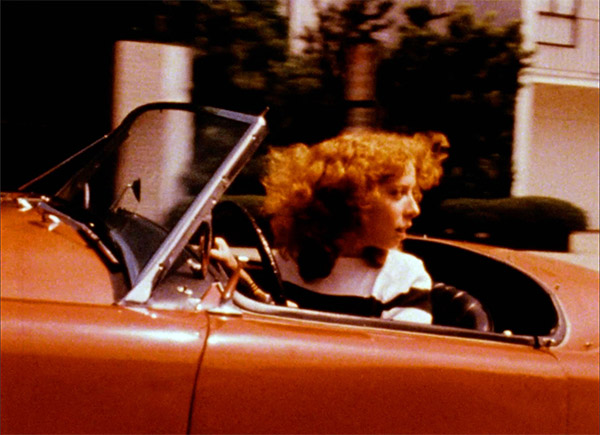Join us for a post-screening discussion with guest curator and Sonbert archivist Jon Gartenberg and artist Abigail Child, in person.
This weekend of four analog 16mm film programs celebrates the work of Warren Sonbert (1947–1995), a filmmaker driven by the belief that “independent film...is the only avenue for those who want to take risks and satisfy their own self-imposed demands.” Adapted for the National Gallery of Art from a series originally curated by Jon Gartenberg for the Museum ofModern Art. All titles are shown in 16mm film format. See the first day’s programming.
Program 3: From Mise-en-Scène to Montage
One of the most profound themes throughout Sonbert’s work is that of love between couples, in all its pitfalls and perfect moments. He expresses this theme not only between his protagonists onscreen, but also in the relationship between his ever-roving hand-held camera and the human subjects within his field of vision.
The Bad and the Beautiful (1967, 34 minutes)
This film is noteworthy for Sonbert’s use of in-camera editing, assembling individual 100’ camera rolls he shot into a series of mini-narratives. Each camera roll sequence captures an individual couple in unusually intimate, everyday moments: eating, making love, dancing, and whiling away the time.
Tuxedo Theater (1969, 21 minutes)
In 1968, Sonbert began using his hand-held Bolex camera to enlarge his field of vision beyond New York, recording footage as he traveled around the world. He wrote, “once you’ve got all those variations in one country it multiplies itself in conjunction with the neighbor next door, and after that the comparisons of continents is limitless … you get what is unique about wherever you are, but most important, how everything is really alike … how things extend from one another.” Tuxedo Theater offers evidence of Sonbert’s first steps in developing his unique style of montage, which subsequently resulted in his magnum opus, Carriage Trade.
Postcards from Warren (Jeff Scher, 2015, 1 minute)
One of the last things Warren said to me was, “I’ll send you a postcard.”
Program 4: Poetics
Sonbert’s filmmaking has been said to have influenced the avant-garde Language poets movement. Experimental film served as inspiration to the early work of Language poet Carla Harryman. She dedicated her poem “Obstacle” to Sonbert, explaining, “it was written in the dark of a movie house in the Mission District of San Francisco while I was watching his film, Divided Loyalties.”
Divided Loyalties (1978, 22 minutes)
Sonbert said of the film, “There is somehow a link, a chain, by the very act of editing, of putting shots/images next to one another, that says our pleasure is somehow at the expense of another’s suffering … the filmmaker being both callous and opportunistic, sharing in the guilt, taking advantage just as much as the audience of other people’s misfortune to build his argument…the artist is cool and detached, but the reason is to shake up and disturb.”
A Woman’s Touch (1983, 22 minutes)
This film is modeled after Alfred Hitchcock’s Marnie (1964), in which Tippi Hedren is subsumed by Sean Connery’s dominating presence in her life. Sonbert recreates this tension between male domination and female (in)dependence. Men are shown primarily in commanding positions of business, whereas women are shown in more domestic roles. He cuts between these modes of existence, interspersing them with abstract images of flowers, landscapes, lights at night, fireworks, and flows of waterthat provide visual and mental respites.
Surface Noise (Abigail Child, 2000, 13 minutes)
Cobbled from found footage that director Abigail Child describes as “outtakes of outtakes,” the film is a dense collage of images with a John Zorn-like soundtrack. Sometimes the images sync with the noise—the flailing of a salmon swimming upstream is coupled with a rimshot, and home movie footage of a man laughing is paired with a female opera singer. In most of Surface Noise, however, sound and image follow their own dialectical paths, creating a density which is Child’s tribute to the equally complex films of Warren Sonbert.
Part of the We Have Always Been Here 2024 film series
The end time for this event is estimated. End times may vary with post-screening discussion, audience Q&A, or other factors. All film events finish by 5:00 p.m.
